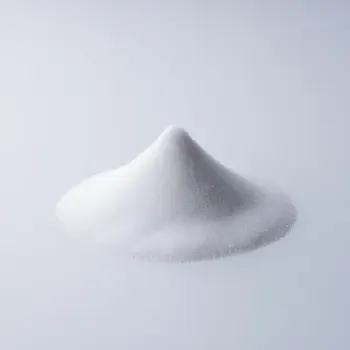
Substitutes for sugar in cooking include honey, maple syrup, fruit purees, artificial sweeteners, condensed milk, erythritol, brown sugar, coconut sugar, stevia, and agave nectar, each offering unique flavors and properties for various recipes like baked goods, preserves, dairy desserts, sauces, and beverages.
Honey provides sweetness along with a distinct flavor. It adds moisture and color to baked goods. Use a 3:4 ratio of honey to sugar, reducing the liquid in the recipe. It's also important to lower the oven temperature by 25°F to prevent over-browning. Popular brands include Nature Nate's and Manuka Health.
Maple syrup can replace sugar with its unique flavor. It's suitable for moist baked goods. Use a 3:4 ratio, decreasing the amount of liquid. It also contains minerals and antioxidants not present in sugar. Brands like Coombs Family Farms and Crown Maple are well-regarded.
Fruit purees, such as apple or pear, can naturally sweeten preserves while adding fiber. The substitution ratio varies by fruit sweetness and the recipe’s requirements. Experimentation may be necessary to achieve the desired sweetness.
Artificial sweeteners like Splenda can be used for preserving, especially for those managing sugar intake. Follow the manufacturer's conversion rates, as they can vary. Note that some artificial sweeteners may not provide the same preserving qualities as sugar.
Sweetened condensed milk is a thick, sweet product that can replace sugar in dairy desserts. It also adds creaminess. Adjust the amount based on desired sweetness, as it is much sweeter and denser than sugar. Eagle Brand is a common choice.
Erythritol is a sugar alcohol that is 70-80% as sweet as sugar but has almost no calories. It works well in creamy desserts and can be used in a similar ratio to sugar. Brands like Swerve and NOW Foods are popular options.
Brown sugar, which is white sugar with molasses, adds a caramel-like flavor. It can be used in a 1:1 ratio and works well in sauces and dressings, providing a deeper flavor. Brands like Domino and C&H are commonly used.
Coconut sugar has a lower glycemic index and imparts a slight caramel flavor. Use it in a 1:1 ratio for sugar, but expect a subtle flavor difference. It dissolves well in liquid-based dressings. Brands like Big Tree Farms offer organic options.
Stevia is a natural, calorie-free sweetener many times sweeter than sugar. A small amount goes a long way, so use sparingly and to taste. It works well in drinks without altering viscosity. Popular brands include SweetLeaf and Truvia.
Agave nectar is sweeter than sugar and dissolves easily in liquids, making it a good choice for sweetening beverages. Use it in a 2:3 ratio. Be aware that it has a higher fructose content, which could impact health. Wholesome Sweeteners is a recommended brand.

Your ultimate Recipe Box, Meal Planner, and Cooking Class all in one
| Recipe Category | Substitutes |
|---|---|
| Baking | Honey, Maple Syrup |
| Preserving | Fruit Puree, Artificial Sweeteners |
| Dairy-Based Desserts | Condensed Milk, Erythritol |
| Sauces and Dressings | Brown Sugar, Coconut Sugar |
| Sweetening Beverages | Stevia, Agave Nectar |
Sugar plays a vital role in many recipes, but numerous substitutes can be used to achieve similar results while catering to diverse dietary preferences and health considerations. When substituting, it's important to consider the flavor profile, sweetness level, and physical properties of the alternative, as well as the purpose sugar serves in the particular dish.